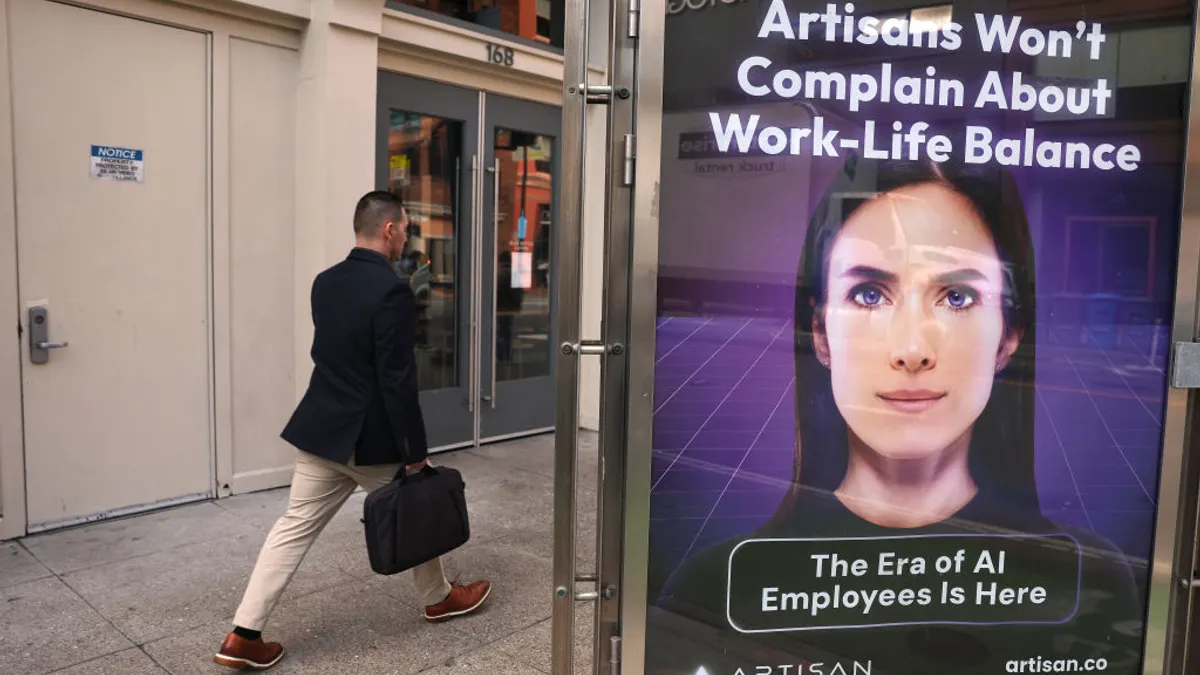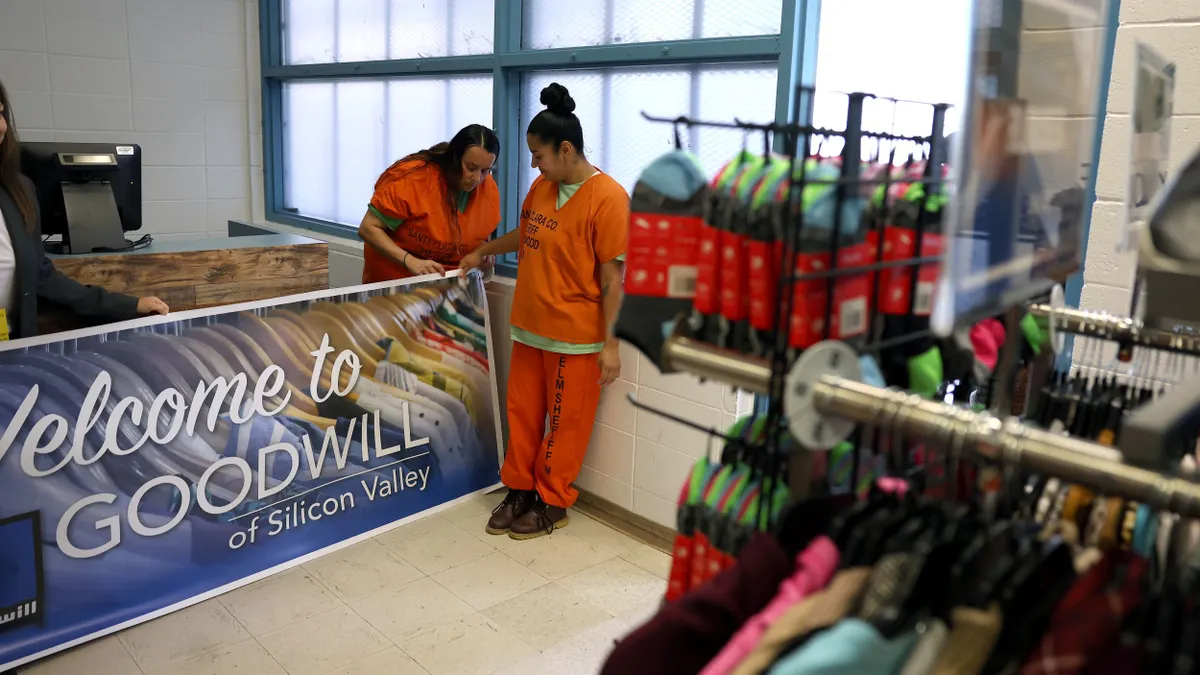As legal medical and recreational cannabis dispensaries expand across the country, the industry is experiencing a significant lag in training staff to professionally and appropriately service consumers.
Whether they overcome the challenge or blaze out trying, the marijuana industry may serve as an interesting example and case study for other employers trying to create more substantial training and development programs amidst a talent shortage.
Growing like a weed
Legal and decriminalized cannabis is expected to create more jobs in the U.S. by 2020 than manufacturing, utilities or the government. With an estimated quarter of a million anticipated new jobs, it’s considered the fastest growing industry in the U.S., with annual revenue of $7.2 billion in 2016.
- Medical cannabis sales are projected to grow from $4.7 billion in 2016 to $13.3 billion in 2020.
- Recreational cannabis sales are projected to grow from $2.6 billion in 2016 to $11.2 billion in 2020.
Today 100,000 to 150,000 workers are employed in the industry with another 90,000 in related “plant-touching” companies. With 29 states and the District of Columbia allowing medical cannabis sales and an additional eight states allowing recreational use sales, the industry is growing like, well a hothouse bud. And with it, the need to train staff.
Disjointed guidelines
Unfortunately for consumers and dispensary owners there are no overarching laws or certifications for employees in the industry as of yet. Perhaps because legalization is state-by-state, combined with the infancy of the industry, the issue of training staff — which may have been largely ignored in the past — is becoming a problem for dispensaries and owners.
For growers who may have started as enthusiasts, to budtenders at dispensaries who may have been hired for their customer service/retail experience, the need for consistency across the industry is becoming apparent. With no national standards or licensing, owners of such businesses must look to state laws for worker education requirements, if any exist. Some states require employee registration; others require education on specifics, like patient confidentiality. Still others have no guidelines at all.
Micah Tapman, Managing Director at Canopy Boulder is aware of the challenges business owners face. “Compliance training is particularly expensive in the cannabis industry because of rapid staff turnover," he said. "Many jobs are low-paying, low-skill positions despite being of critical importance for maintaining compliance with state laws. Simple tasks like managing inventory or validating customer identification take on significant meaning when a problem could result in the business being shut down. This is similar to compliance training for bartenders and wait staff who need to verify age before serving a drink.”
As states refine their laws and add regulations, he adds, “You have to be willing to adjust when the state sends out yet another change in regulations while at the same time making sure to watch the details and avoid very costly compliance mistakes."
The type of training required depends on the business, with retail staff learning about products and usage patterns to help customers select the right products. Manufacturers and cultivators will spend more time training staff on quality control, inventory management, and other supply chain aspects of the industry.
As online compliance companies continue to spring up, owners are finding more resources, but Tapman adds, “The switch from spreadsheets and notebooks to online compliance platforms, third-party audits, and certifications is happening but as with all change it is very challenging.”
It's a challenge for those outside the cannabis industry, as well, especially as more employers begin to rely on employee development as a retention tool in a hot talent market. If the cannabis industry succeeds in its training goals, it could make finding retail talent in certain states even more difficult.
Training gap
A 2016 study by Cannabis and Cannabinoid Research, Training and Practices of Cannabis Dispensary Staff revealed just over half (55%) of dispensary employees have had any formal training regarding medical cannabis and only 20% had any type of specific medical or scientific training. Of that same group, 94% report that, even though untrained, they provide advice, guidance or counsel to patients.
The study found recommendations in response to a patient’s symptoms and conditions are frequently counter to existing empirical literature of recommended concentrations for particular disorders. Unfortunately, more consumers look to budtenders for advice than qualified physicians.
Traveling the country, and talking to business owners, James Yagielo, CEO, saw first-hand what the study revealed. “Budtenders lacked the formal training needed for the job and were the biggest complaint of patients,” he said. This motivated him to co-found HempStaff, a provider of training for the cannabis industry. “Budtenders are on the front lines when it comes to recommending products to even the most novice consumers, and we want to make sure that consumers are receiving educated recommendations from trained professionals.”
HempStaff's co-founder and president Rosie Yagielo travels to dispensaries to present a four-hour course tailored to each state’s specific cannabis program. Cannabis training requires some specific focus areas — including pharmacology of products, understanding the plan itself, how compounds in cannabis work and the impact products can have on consumers. It's not a typical customer service training, but it is still ultimately focused on consumer interactions.
“When walking into a dispensary, consumers should expect that they are receiving accurate, non-biased advice from the dispensary agent. The ultimate responsibility of the dispensary agent is to be a product specialist,” Yagielo said.
For growers, training can become a significant issue as well. As the use of pesticides in the industry evolves, growers must be trained and well-versed in chemicals allowed in their state, how they will interact with the product and consumers and maintain a continuous and ongoing knowledge base.
Emerging trends in other industries, such as e-commerce, has also made customer-facing jobs generally more complex. Retailers of all types must be focused on the customer experience, and that begins with employees that have the right training to handle any number of questions or situations. For remote customer service employees — an increasingly key job in holiday hiring — having the right training over products they likely have never seen is especially important.
Separating the tops from the stems
Hiring dispensary and grow workers can be challenging. Retailers are often approached with people who want to work in the industry because of their love for the product, but enthusiasm doesn’t outweigh skills. Other professionals, such as chemists, may be highly qualified to work in manufacturing, cultivating or testing, but worry about a stigma associated with jobs in the industry.
“The other side of our training consists of learning how to work with customers," Yagielo adds. "The cannabis industry has worked hard to legitimize itself, and professionalism from dispensary workers can play a big role in furthering that legitimization."
To fill the hundreds of thousands of jobs projected for the industry, recruiters will have to widen their search for candidates beyond the niche market of cannabis and look for experience or training that may be transferable to the industry, from horticulturalists to customer care to training professionals.
Generally, as employers struggle against a tight talent market, successful companies have also spread out their talent nets to catch potential hires outside of the standard pipelines, like university.
Lessons learned across industries
Budtenders, or others in industries that work with the public to make wise health choices, must have a working knowledge of their product line. At minimum, they should be aware of what they don’t know. Rather than providing medical advice without medical training, they should recommend customers refer to their physician’s advice.
The same should apply to drug store workers who aren’t pharmacists or those in the $122 billion dollar a year supplement industry. A name tag suggests to consumers the person they ask for advice when shopping is trained — which, more often than not, is not the case.
As an industry poised to dominate the new job creation market for the rest of the decade, cannabis could become a forerunner in adapting available employees to their market. They may also set an example of how comprehensive employee training for those who dispense medical advice should be managed.



















